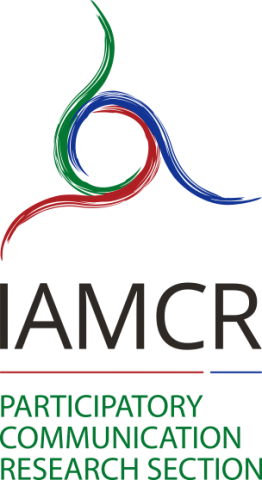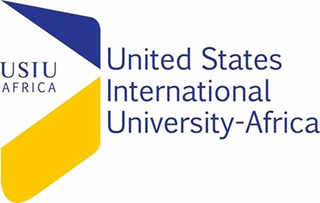Participatory Communication Research Section - Call for Proposals 2021
The Participatory Communication Research (PCR) Section of the International Association for Media and Communication Research (IAMCR) invites the submission of proposals for single papers and multi-paper sessions (the online conference equivalent of a panel in a face to face conference) for IAMCR 2021, which will be held online from 11 to 15 July, 2021. The conference will also have a regional hub in Nairobi, Kenya. Both the online conference and the regional hub will be hosted by the Department of Journalism & Corporate Communication of United States International University-Africa (USIU-Africa) in Nairobi. The deadline for submission is 9 February 2021, at 23.59 UTC.
See the IAMCR 2021 general call for proposals
Themes
IAMCR conferences address a wide diversity of themes defined by our 33 thematic sections and working groups. We also propose a single central theme to be explored throughout the conference with the aim of generating and exploring multiple perspectives. This theme is addressed in plenary and special sessions, and in some sessions of the sections and working groups. Not all submissions have to address this central theme.
The central theme for IAMCR 2021, Rethinking borders and boundaries: Beyond the global/local dichotomy in communication studies, is concerned with how changes in communication theory and practice are challenging our understanding of global and local, creating new identities and discourses, and enabling a hybrid glocalisation, with both positive and negative consequences.
Five sub-themes of this central theme have been identified: The rebirth of populist discourses; Activism and the new global social justice movements; Trends in global media ecosystems; Identity: Gender, class, ethnicity, religion, sexuality; and Communication for development in health, climate change and education. See the complete theme description and rationale here.
Conference model: Online with an African "hub" and global satellite activities
In alignment with the possibilities offered by the COVID-19 pandemic, and with the conference’s main theme, Rethinking Borders and Boundaries, IAMCR 2021’s conference will offer multiple modalities for participation. It will be primarily an online conference but will also have an African “hub” at USIU-Africa, and satellite activities at various points around the globe.The various components of the conference include:
1. Online Conference Papers – Abstracts submitted in response to the section and working groups CfPs will be reviewed by the sections and working groups and accepted authors will be invited to submit short conference papers (1,000 to 4,000 words). These papers will be grouped into sessions and published on the conference website prior to the conference on a platform that will enable discussion the conference.
2. Section and Working Group Online Sessions – IAMCR sections and working groups will curate a number of video sessions highlighting key issues within their thematic areas of specialisation.
3. Flow34 – A stream featuring videos that integrate academic and aesthetic narratives. Proposals for this component will be reviewed by the Flow34 team. Topics can originate from the entire field of Communication and Media Studies. The selected videos will be scheduled and presented on the conference platform.
4. Plenary Sessions – Several plenary sessions streamed from the conference hub at USIU-Africa will feature contributions from around the globe.
5. Special and Partner Sessions – These video sessions will be produced by IAMCR and its partners.
6. Nairobi Hub – In addition to being at the centre of the global online activities, the conference hub, at USIU-Africa, will host a regional face-to-face event (in accordance with the possibilities afforded by the pandemic). The regional event will interact with the global at several moments of the conference.
7. Other Regional/National Hubs – We are currently considering the involvement of other regional and national hubs and will be accepting requests from IAMCR members interested in sponsoring them.
This call for proposals is for the Online Conference Papers.
IAMCR members will have full access to all online components.
The Participatory Communication Research Section (PCR) explores the theory and practice of participatory communication, and has played an important role as a platform for new thinking. In line with the general IAMCR call for papers for the Nairobi 2021 conference, the PCR section addresses issues related to communication processes beyond borders and dichotomies, envisaging within the local, regional, national or international spheres and the ways in which communication and/or media foster social change through participation.
We welcome contributions — papers, individual research or thematic multi-paper session proposals, according to the different possibilities of the IAMCR Nairobi 2021 conference — focusing on participation from a diversity of fields, including (but not limited to) development and social change, politics and democracy, health and care, culture and arts, urban and rural, education and literacy, and the everyday. While the PCR section has traditionally accommodated creative approaches to participatory communication, it has over recent years, intentionally encouraged interdisciplinary methods marked by critique, creativity and innovation.
This year conference theme allows the PCR section an opportunity to highlight the role of participation in the shaping of borderless communicative phenomena in face of crisis and uncertainty or in the empowering of communities breaking tangible and symbolic boundaries in search of a collective voice. Both as an intrinsically political concept and as an evolutive process, participation has been a driver for change and innovation. To discuss and discover the limits and horizons of the participatory territory is a contemporary challenge: the glorification of participation on one hand and phenomena of dark or pseudo participation on the other hand, should raise questions about both the conditions and the perceptions of genuine participation, providing inspiration and instigating participatory communication researchers. Why, how and what kind of participation matters in the 21st century?
In addition to submissions related to the conference theme the section also welcomes contributions that discuss theoretical or methodological perspectives on a variety of participatory communication research issues and specific case studies. In particular, the section invites proposals for single papers and multi-paper sessions, theoretical, research-based, or case studies that engage with any of the following themes:
1. Global dialogues about participation
Proposals that bring together scholars from different regions, continents and territories to discuss particular aspects of participatory communication (social phenomena, theoretical and paradigmatic approaches, methods, …). Also, comparative research and multi-regional case studies are called for. The section believes that an intellectual exchange between different parts of the world would strengthen our work on participatory communication.
2. Participation and uncertainty
Contemporary global events and circumstances, heavily shaped by the pandemic reality, climate change and social and economic downfall, expose individual and collective agency (or its absence). Although uncertainty as a concept has been the subject of psychological, economic, health and behaviour research, and intolerance to uncertainty has been identified and studied, it does not substantially feature in communication and participatory investigation. Does the uncertainty about the future promote the need for participation? Is the participatory drive of communities enhanced by times of incertitude? Is the perception of risk a driver for participation and for creative and innovative forms of participation? Proposals that address this challenge are encouraged.
3. Participation, communication for development and social change
Practitioners as well as academics working in the field of Communication for Development and/or Social Change (CDSC) are invited to critically reflect on the role of regional communication, and on its participatory dimensions. What are the similarities and differences in how CDSC is conceived and practiced across the globe? Who are the changemakers, what are their goals and challenges, and how do they articulate and perform processes of change? A broad spectrum of initiatives – ranging from institutional actors such as governments and INGOs, to smaller NGOs, civil society platforms, and social entrepreneurs – may reflect on the role of participation and on how the transformation of social, cultural and political territories influence and/or function as a pretext for their work.
4. Civil society participation: consumers and citizens’ voices
Alternative forms of participation in the economic, social and political system have been emerging, originating from a civil society that has been looking for new paths and forums to make its voices heard. Whether in sparse and spontaneous events, or embedded in more organized and strategically designed movements, these phenomena have been gaining prominence and constitute a research topic that is of relevance to the section. Are these more authentic forms of participation and are they representative of social reality? Are they just part of an empowering, awareness-driven discourse for consumer-citizen initiatives, are they part of a media-staged scenario or do they have material consequences in the daily lives of communities? How do they emerge, survive or disappear in the vortex of contemporary existence? What powers do they subvert or create? What issues for academic research and why are they relevant? What are the implications of their participation in the reconfiguration of the public sphere?
5. Participatory theory
To develop a deeper understanding of the theoretical backbones of participatory practices the section values proposals that ground participatory practices in social, political and/or cultural theory, or that provide a philosophical reflection on participatory practices are most welcome. Also, conceptual discussions about the nature of participation and its related concepts – as for instance power, empowerment, interaction, and engagement – are welcomed.
6. Participatory ethics
Contributions that reflect on the need for, and development of, participatory ethical frameworks, the ethical evaluation of contemporary participatory practices, and critiques on the abuse of participatory procedures and mechanisms for non-democratic aims are welcomed. Could the increased opportunities of interaction be considered participation? How to strengthen the articulation of participatory procedures with core democratic values, human rights and ethics? Practices such as trolling and flaming, that are highly present in the contemporary, place considerable pressure on the development of more egalitarian societies, as they generate new imbalances by using (and abusing) the mechanisms of participation and democracy.
7. Methodological challenges in participatory communication research
Researchers in participatory communication face methodological challenges. Relevant questions are here: What is ‘participatory’, if anything, about the ways in which we conduct research? Is participatory (action) research required for doing participatory communication research? How do we construct our identities as researchers, and negotiate our positions towards research participants and other stakeholders in a participatory-democratic way? How do we design the analytical process, and implement criteria for validating our findings? How can we present our work in more interactive and participatory ways? Submissions to this subsection are preferably grounded in concrete research experiences within participatory communication. All research traditions are welcome, including quantitative, qualitative, ethnographic, arts-based, action-oriented, etc.
8. Participation and the private sphere
The PCR welcomes innovative approaches to participatory communication projects dealing with themes that challenge the traditional split between public and private spheres, namely emphasizing the importance of discourses of participation and power in areas of social life which are traditionally considered private; or free from political or institutional interference. This includes, but is not limited to an approach to the political beyond gender, sexuality and moral behaviours socially defined as ‘conventional’ and ‘normal’; power and decision-making in gender relationships, queer sexualities, intimate personal experiences, religious practices, fetishism and fantastic obsessions.
Guidelines for abstracts
Abstracts submitted to the Participatory Communication Research Section should have between 300 and 500 words and must be submitted online via IAMCR's online submission platform. Abstracts submitted by email will not be accepted.
It is expected that authors will submit only one (1) abstract. However, under no circumstances should there be more than two (2) abstracts bearing the name of the same author, either individually or as first author. No more than one (1) abstract can be submitted by an author to the PCR Section. Please note also that the same abstract or another version with minor variations in title or content must not be submitted to more than one section or working group. Any such submissions will be deemed to be in breach of the conference guidelines and will be rejected.
Proposals are accepted for both single papers and multi-paper sessions (the online conference equivalent of a panel in a face to face conference). Please note that there are special procedures for submitting multi-paper sessions. You can find the detailed procedures when submitting your abstract online in the abstract submission system.
If your abstract is accepted, you will need to submit your full conference paper (1,000 to 4,000 words) by 7 June 2021, in order to be included in the programme.
Languages
The PCR section encourages the submission of proposals in any of the three official languages of the association (English, Spanish, French).
The deadline to submit abstracts is 9 February 2021 at 23h59 UTC.
See important dates and deadlines to keep in mind
For further information about the conference contact nairobi2021 [at] iamcr.org
For further information about the Participatory Communication Research Section (PCR), its themes, submissions and multi-paper sessions please contact: iamcr.pcr [at] gmail.com
Join the PCR section in social media: https://www.facebook.com/groups/iamcrpcr/


